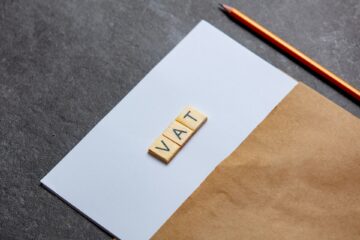A Comprehensive Guide to VAT Registration in Thailand for SMEs
In Thailand, small and medium-sized enterprises (SMEs) play a vital role in the economy, driving job creation and contributing to overall growth. A key aspect for these businesses to succeed is adhering to local tax laws and regulations. Among various tax obligations, value-added tax (VAT) is a primary concern for businesses operating in the country. This tax impacts goods and services at multiple stages of production and can be complex to navigate. For SMEs, understanding VAT registration requirements, benefits, and the registration process is crucial to maintain compliance.
Gaining insight into these vital areas will equip entrepreneurs with the knowledge needed to successfully manage their business’s VAT obligations, fostering long-lasting success and growth in their ventures. Stay tuned as we delve into the nuances of VAT registration in Thailand and the essential role Plizz’s expert services can play in your journey towards compliance and success.
Understanding Value-Added Tax (VAT) in Thailand
Value-added tax (VAT) is a tax levied on goods and services at various stages of production, from manufacturing to the point of sale. In Thailand, VAT is currently charged at a standard rate of 7%. However, certain goods and services may be subject to a zero-rate VAT (0%) or be exempt from VAT altogether. Examples of goods and services exempt from VAT in Thailand include:
1. Unprocessed agricultural products
2. Health and education services
3. Transportation services
4. Non-profit organizations’ activities
5. Sales and import of specific goods (e.g., essential items and international transportation)
Given the complexities surrounding VAT and its potential implications on businesses, SMEs must have a thorough understanding of the VAT system to ensure compliance with the country’s tax regulations.
Eligibility for VAT Registration in Thailand
Business owners and entrepreneurs need to consider whether their company falls under the purview of VAT. Eligibility for VAT registration in Thailand depends on the following criteria:
1. Annual Revenue: Companies with an annual revenue of THB 1.8 million or more are required to register for VAT.
2. Type of Goods and Services: Businesses involved in the sale or provision of goods and services that are subject to VAT in Thailand must register.
3. Foreign Companies Doing Business in Thailand: Foreign companies with a permanent presence in Thailand or providing services that are subject to Thai VAT also have to register for VAT.
Businesses that meet the above-mentioned criteria must register for VAT with the Thai Revenue Department within a specified period of time.
VAT Registration Process in Thailand
The VAT registration process in Thailand can be complex, with several steps and requirements for businesses to follow. A detailed outline of the process is as follows:
1. Complete the VAT Registration Form: Registering for VAT starts with the completion of the VAT registration form (Form Kor. 01) provided by the Thai Revenue Department.
2. Provide Required Documentation: Businesses need to submit several documents, including their company registration certificate, tax identification number, and identification of the authorized person responsible for tax matters.
3. Submit Application: Once the form and required documents are prepared, the application must be submitted to the local Area Revenue Office.
4. Obtain VAT Certificate: Upon review and approval of the submitted documents, the Thai Revenue Department will issue a VAT Certificate (Form Kor. 20).
5. Display VAT Information: Registered businesses should visibly display their VAT registration number and the VAT-inclusive price for goods and services.
How Plizz’s VAT Registration Services Assist SMEs in Thailand
The process of VAT registration can be time-consuming and complex, especially for business owners lacking prior experience or in-depth knowledge of local tax regulations. To streamline this process and ensure compliance, SMEs can turn to Plizz’s expert VAT registration services. Here’s how partnering with Plizz can benefit your business:
1. Accuracy and Compliance: Plizz’s tax experts understand the intricacies of Thailand’s VAT system and will ensure your business is accurately registered, avoiding potential penalties or fines.
2. Time and Resource Savings: Plizz will handle the VAT registration process on your behalf, saving you time and resources to focus on other critical aspects of your business.
3. Ongoing Support: Beyond VAT registration, Plizz offers ongoing support and guidance with VAT-related tasks, such as filing VAT returns, to ensure that your company remains compliant with ever-changing tax regulations.
Embrace the Benefits of Plizz’s VAT Registration Services for Your SME
Understanding the essentials of VAT registration in Thailand is crucial for SMEs, as compliance with local tax laws and regulations is a key component of long-term business success. Plizz’s expert VAT registration services can help your SME navigate this complex process, ensuring a seamless and compliant experience.
By partnering with Plizz, your business can benefit from accurate and timely VAT registration, ongoing support, and valuable time and resource savings. Trusting Plizz’s expertise allows you to focus on your company’s core operations and growth, while enjoying the peace of mind that your VAT obligations are being handled professionally.
Embark on your journey towards VAT compliance and business success by leveraging Plizz’s expert VAT registration services for SMEs in Thailand. Get in touch with Plizz today to discover how their team can help your business navigate the complex world of VAT registration and support your long-term growth objectives.



0 Comments